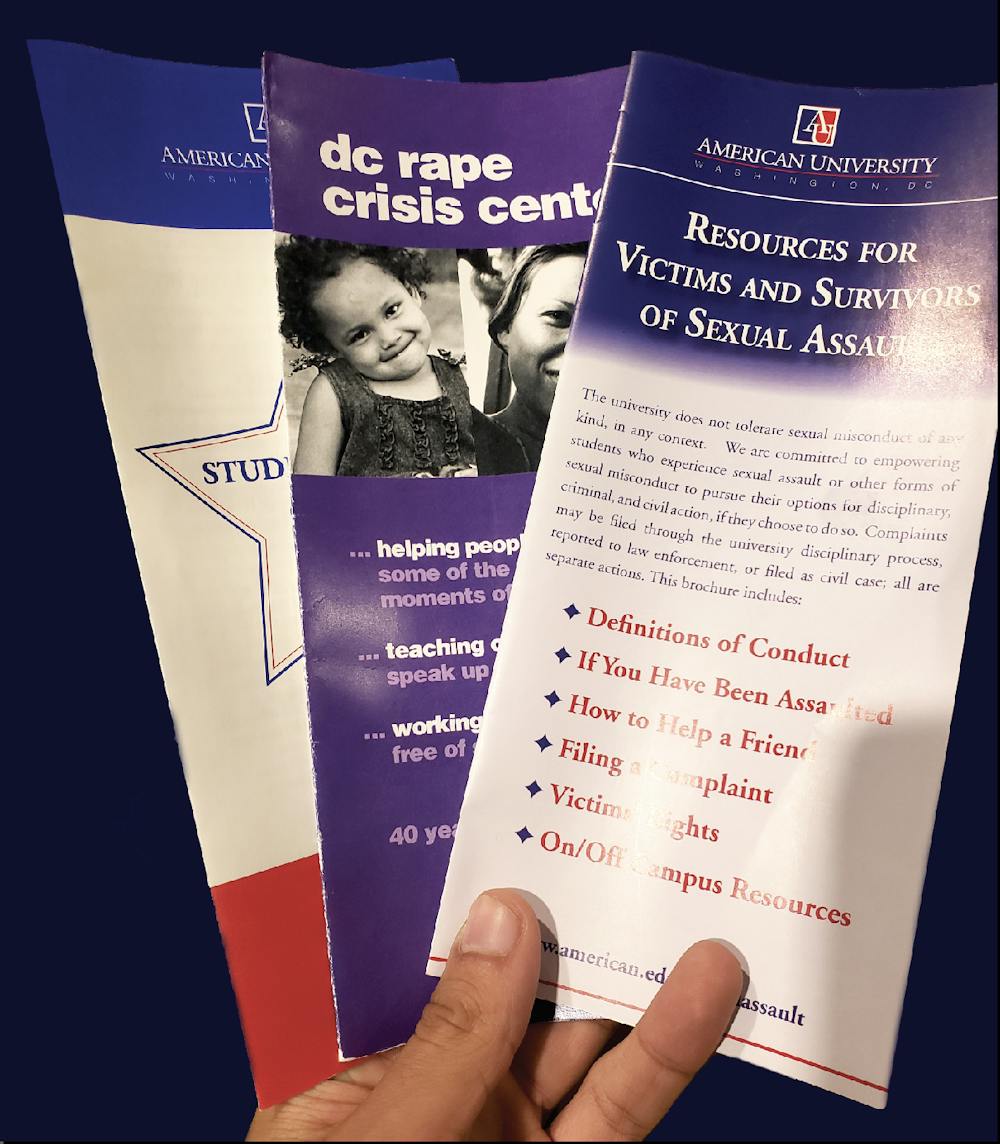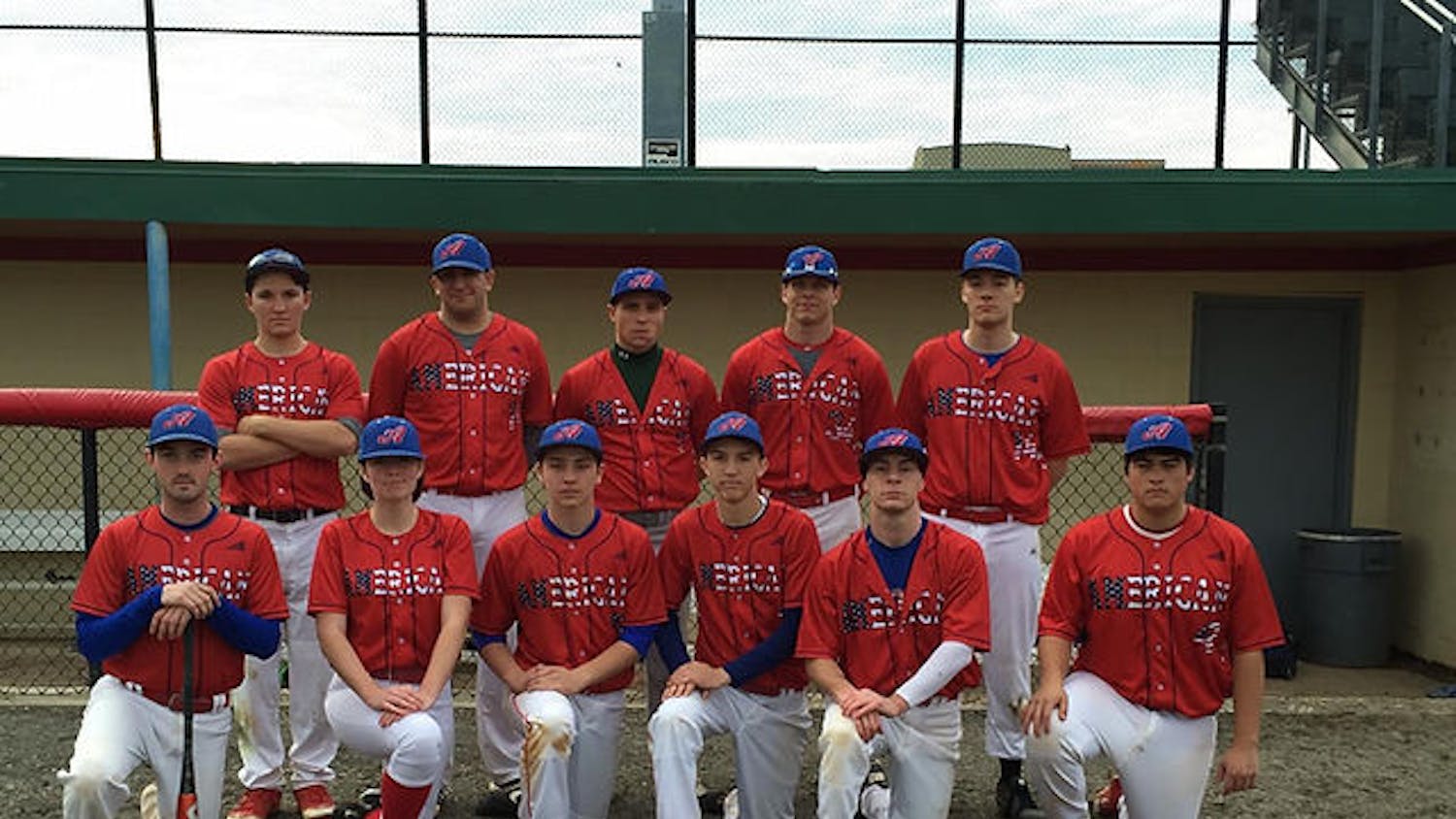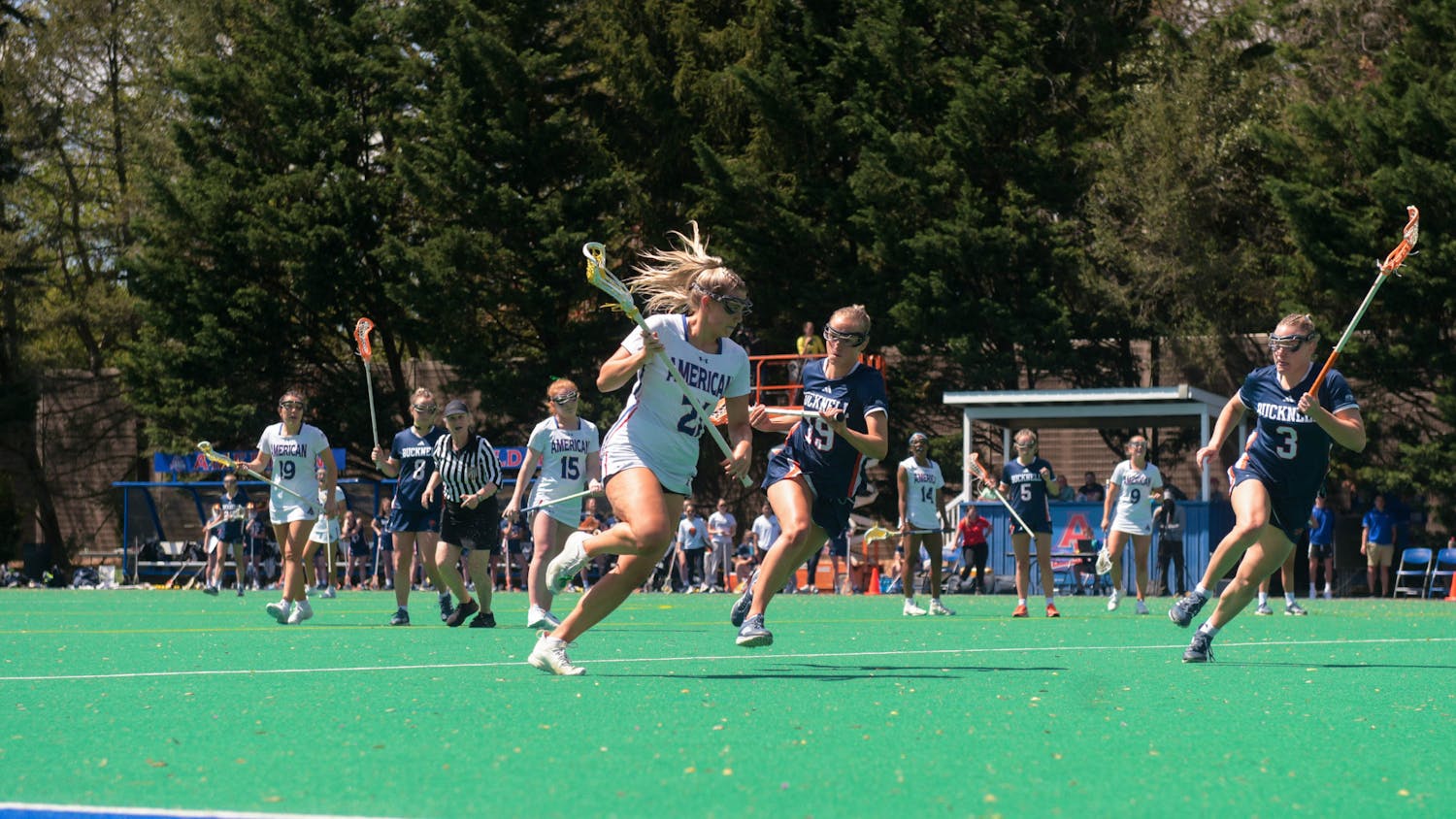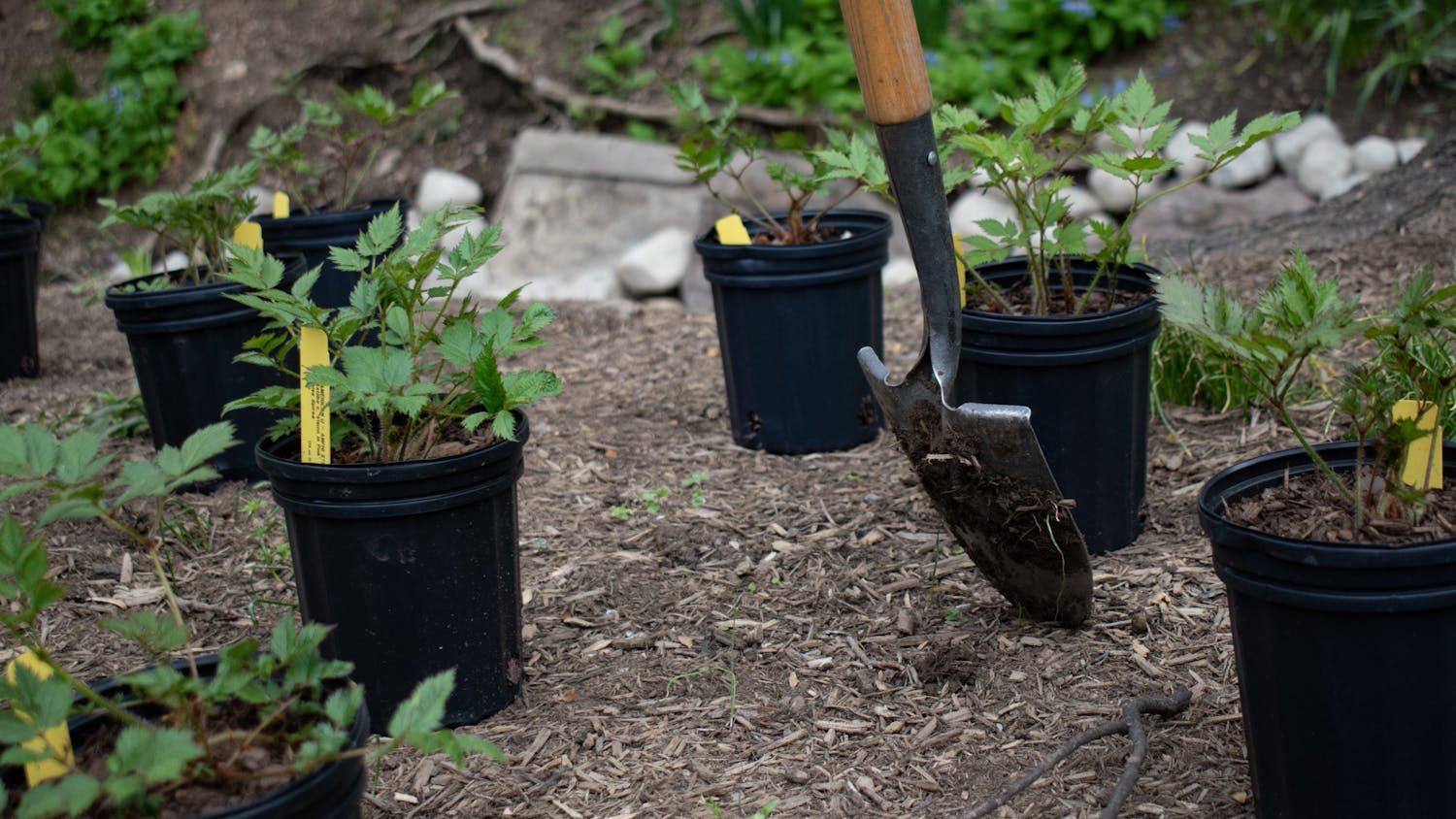During her first year at American University, junior Ismah Khan said she valued the University’s initiatives to educate students on sexual violence prevention and different resources on campus. However, after the first year, she noticed that no one talked about it anymore.
“It’s strange because I feel like AU students only want to talk about things that are palatable,” Khan said. “Knowing how many people suffer from sexual assault, I just feel like AU students don’t want to talk about stuff that actually affects them.”
This past March, AU became the only university in the country — public or private — with five open federal investigations into potential sexual violence violations of Title IX, the federal law that protects against sex discrimination in education.
AU’s Title IX office handles complaints regarding campus sexual assault, stalking and discrimination among others, according to the University’s website. However, students can file a complaint with the Department of Education through the Office for Civil Rights if they feel their case has been mishandled. The exact reasons that these cases were brought to the department are unclear, however, the reasons can vary.
Chronicle of Higher Education reporter Sarah Brown said some Title IX offices see increasing investigations as an indication that students feel more comfortable reporting.
“Sexual assault complaints rising, from the perspective of the Title IX office, is a good thing because they’re saying, ‘Well, more students are coming forward,’” Brown said.
Cassie Moore, a School of Public Affairs senior and director of the Center for Student Advocacy and Student Equity (CASE), said while the number of cases can seem alarming for the University, it may be because students are more aware of their rights and have a wide array of resources to help them with the process.
“As a student body, everybody is much more politically active and engaged so I think people are more inclined to do things on their own and seek help, reach out and file cases,” Moore said.
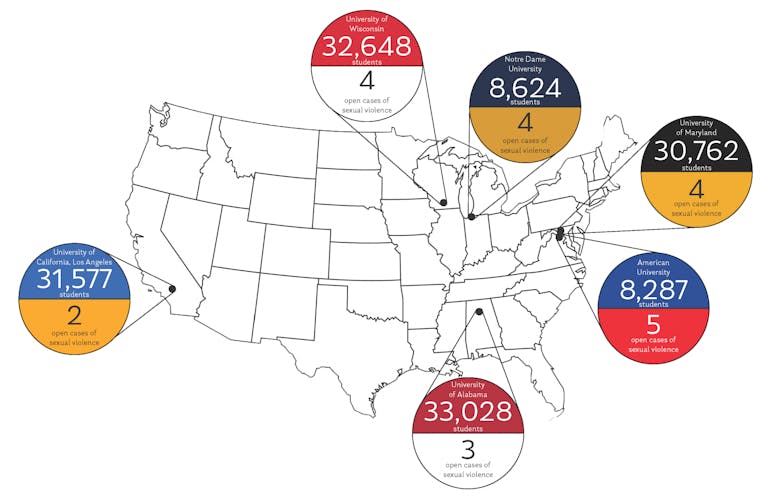
Reporting Process
If a student experiences sexual violence on or off campus, they can file a complaint with the University’s Title IX office. Title IX Program Officer Regina Curran said after a complaint is filed, the office starts a formal investigation with all parties involved.
In 2017, the process for handling complaints changed from a hearing model to an investigation model, as reported by The Eagle. Previously, the hearing model concluded with a conduct hearing in order to determine if the respondent was found responsible. However, the investigation model removes the hearing process, and an investigator determines whether or not the respondent is responsible.
Curran said the University decided to change from a hearing model to an investigation model due to the significance of the stress it was causing for students involved. She said the Title IX office did not want to amplify what was already a stressful situation.
After the investigation is over, the respondent, or the student accused of misconduct, will either be found responsible or not responsible. If they are found responsible, a panel made up of a trained student, faculty member and staff member will decide what sanctions to impose.
At the end of the process, both respondents and complainants have the option to appeal the decision. Curran said if they don’t like the outcome of the appeal, then they can file a report with the Office for Civil Rights.
“The Department of Education opening an investigation depends on complaints being filed and whether the Department decides they want to start an investigation and whether they decide they have jurisdiction,” Brown said.
Some of these cases may take longer to resolve because of the hundreds of cases the Obama administration opened, Brown said. She said many of these cases took at least five years until a resolution agreement was announced.
However, Brown said the Trump administration has generally been quicker with investigations but there are still many open. Trump’s Department of Education implemented a “rapid resolution process” to support complainants and institutions quicker as well as a policy that does not require investigators to look for evidence of broader discrimination.
Resources on campus
The University provides both confidential and non-confidential resources on campus, including the Health Promotion and Advocacy Center and the Counseling Center, but some students believe these resources don’t do enough.
HPAC Director Mickey Irizarry said while the center is a confidential resource and is not directly associated with the Title IX office, it provides resources that support students and make them “more knowledgeable about the process.”
“We’re promoting awareness around the issues of sexual interpersonal violence just so students understand that is an issue to begin with,” Irizarry said. “Like how common it is or what consent means.”
The Office of Advocacy Services for Interpersonal Services is a subsect of HPAC and provides free and confidential victim advocacy for students who are affected by sexual violence. Khan said when she went through a Title IX investigation, she felt extremely comfortable expressing herself there and looked to it for emotional support.
However, Khan said since OASIS does not provide long-term care, students often need to find another resource to help them after the process is over. She said the Counseling Center fails to deliver that immediate support.
Sophomore Janvi Sai said her enthusiasm for HPAC’s services fell flat after she visited the center and waited a month for an appointment at the Counseling Center during a time when she wanted to revisit problems that involved sexual harassment.
“A lot can happen in a month and a lot did,” Sai said. “Now looking back at it, I should have booked an appointment off-campus with another therapist during that time.”
Freshman Jewel Walden said she would feel comfortable using any of these resources. She said in AUx, a mandated first-year transition course, students are encouraged to take full advantage of them.
“Being a woman, [sexual assault] is a fear,” Walden said. “You want to know that there is a place to go with people who will listen to you and will fight for you and will help you with cases.”
Empower AU
Students said one of the most impactful University-led initiatives they encountered was Empower AU, a 90-minute in-person mandated program led by students during orientation or Welcome Week.
Irizarry said it is a consent education program but students also learn about topics ranging from coercion to trauma response. According to AU’s website, the program is “homegrown” and “nationally recognized.”
Jane Palmer, a professor and director of the Community-Based Research Scholars program, conducted what is known as the the Palmer Survey — a campus survey on sexual assault, dating violence and bystander intervention. Her research showed that there was a reduction in sexual victimization experiences — unwanted or forced sexual activity — from 2015 to 2017. In 2015, Empower AU did not exist, but by 2017, freshmen and sophomores participated in the program.
Data collected from 2,003 students’ pre- and post-tests showed that students’ knowledge about consent, intervention and resources on campus grew. Only 15 percent of students said they were familiar with strategies of intervention in the pretest, but it rose to 67 percent after students completed the course.
“I thought the course was informative and important and they put a lot of emphasis on how to reach out, where the office was, and if you need help to go there in any of those situations,” Walden said. “We [incoming freshmen] all took it very seriously.”
Khan said while she thought the program was extremely thorough, students stop talking about these issues after their first year. As a result, she said some of her friends who experienced sexual assault were not aware of different opportunities and resources.
Student-led initiatives
Within student government, CASE was established to provide free consultation to students who have allegedly violated University policy, including Title IX. Both complainants and respondents can turn to CASE, but Moore said it is more often complainants that seek support.
“We walk them through everything before it’s done and let them know how to best approach a conference or hearing,” said Moore.
Moore said other universities, like Georgetown, that don’t currently have a student-led advocacy program like CASE are looking to start one, similar to the way CASE functions at AU.
Other student organizations that promote sexual violence prevention are Students Against Sexual Violence (not active this semester) and AUSG’s Women Initiative. These organizations partner with HPAC throughout the year for events such as Dating Violence Awareness Month.
Local and National Title IX concerns
On a national scale, the data from surveys shows that a majority of students don’t trust their university’s Title IX processes. In addition, some students believe that their school would not conduct a fair investigation.
“[The Title IX office’s] job is not to protect the university,” Brown said. “I think, in my reporting, I found that a lot of Title IX offices have found themselves in a position where they face pressure to do things that protect the university and the university’s reputation.”
The Association of American Universities recently published findings from their survey conducted from 33 schools nationwide with 181,752 students participating. AU was not included in this survey.
According to the findings, only 31 percent of students said they were “very” knowledgable about how to report sexual assault. 45 percent of students said if they reported non-consensual sexual conduct, the university would not take the case seriously.
Khan said she believes if American was included in the survey, students would have reported similar feelings.
“I think at its heart, AU students really care and are very passionate about these issues and will bring changes because they are really driven,” Sai said.
This article originally appeared in The Eagle's December 2019 print edition.

